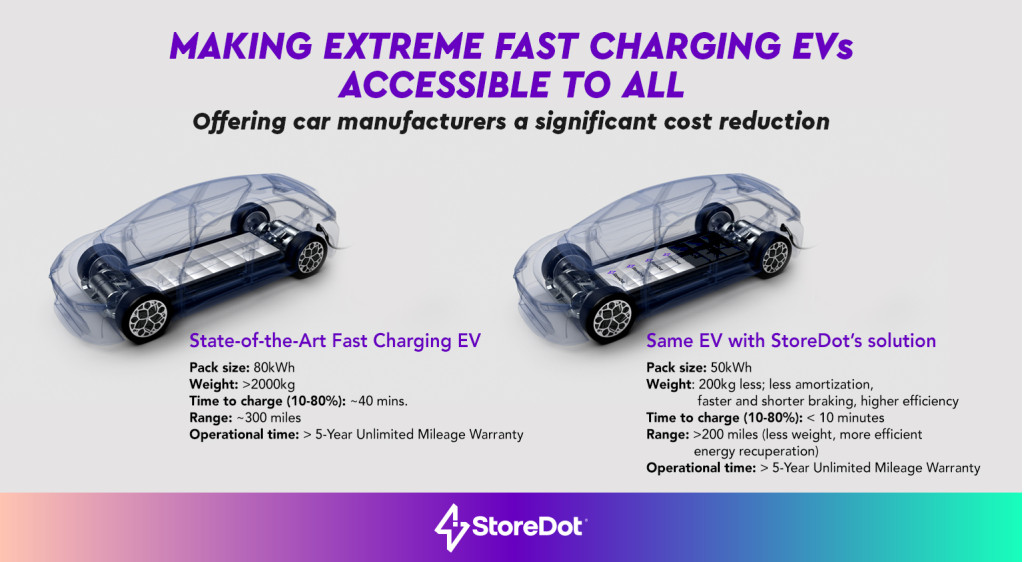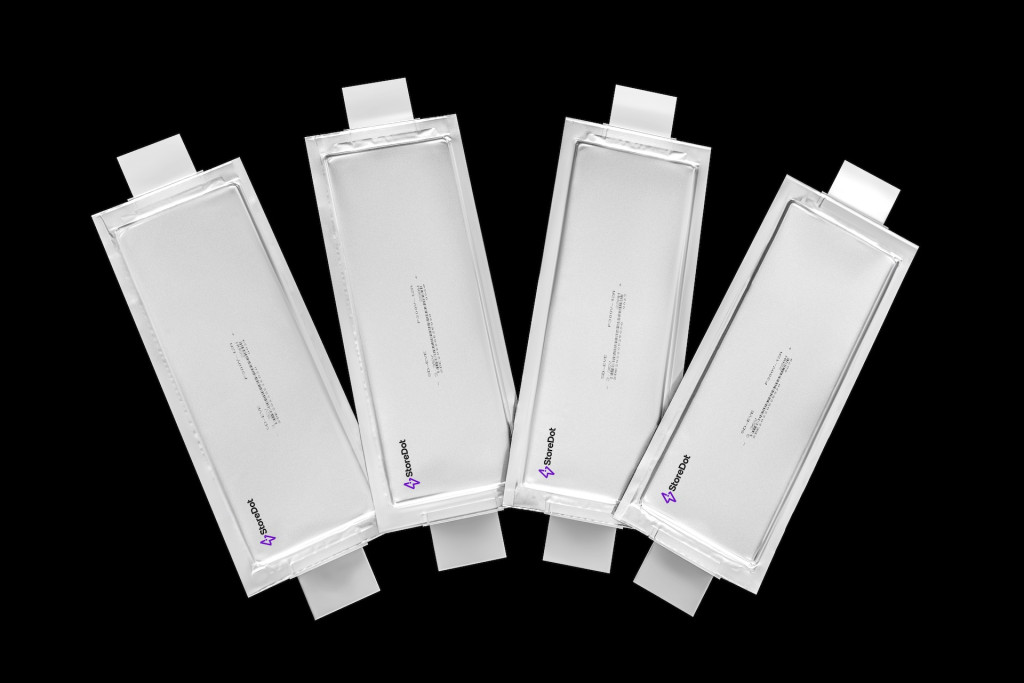StoreDot claims its fast-charging battery tech will allow automakers to design EVs with smaller battery packs—saving cost and weight.
The argument seems to be that, by enabling what the company calls "extreme fast charging," allowing more frequent recharges with less inconvenience, automakers won't need to rely as much on larger battery packs and the extra buffer of range they provide to make EVs practical. As StoreDot notes in a press release, smaller battery packs improve efficiency by reducing weight, and they decrease costs, making EVs more affordable.

StoreDot claims its battery tech will reduce EV weight and cost
Downsizing an EV battery pack from 80 kwh to 50 kwh could reduce weight by up to 440 pounds and cut manufacturing costs by about $4,500, depending on raw-material cost fluctuations and energy-density improvements, StoreDot claims. The company believes its tech will make that possible.
After conducting real-world testing, StoreDot says it's on track to deliver its "100in5" battery cells to automakers by next year. These cells target 100 miles of range in just five minutes of charging, and StoreDot even has an online calculator to illustrate this.
The company aims to launch cells that add 100 miles of range in three minutes of charging in 2028, and 100 miles with two minutes of charging by 2032. StoreDot claims that its batteries will be offered in multiple formats, including pouch, prismatic, 46XX cylindrical, and 2170 cylindrical.

StoreDot sample batteries
StoreDot counts BP, Polestar, and Volvo among its investors. It also has a high-volume manufacturing joint venture with EVE Energy, which will be one of the suppliers for BMW's Neue Klasse EVs, and for Aptera, among others. EVE Energy also produced the first sample cells for StoreDot in 2021.
StoreDot isn't the only battery firm emphasizing faster charging. Sila Nanotechnologies claims to achieve that, along with a 20% range boost, with silicon-anode battery tech slated to go into the Mercedes-Benz EQG electric SUV. General Motors is betting on silicon-anode tech as well, backing developers in the hope that it produces more efficient batteries.












